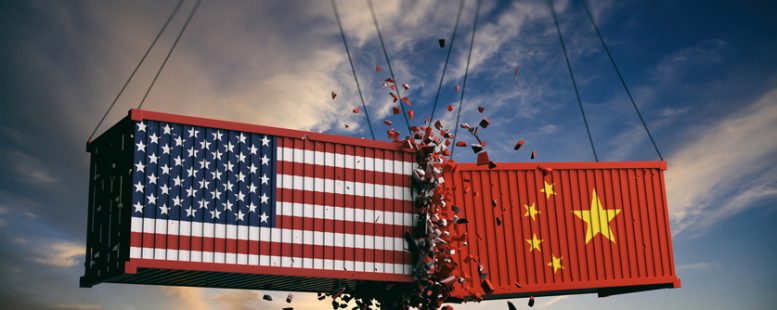Our Opinion: 2019
US/China trade truce?

The US and China agreed to continue talks during this weekend’s meeting of G20 leaders in Japan, although they failed to make significant progress toward a deal to reduce tariffs and no joint statement was released. President Donald Trump said that talks with China were “back on track” and China’s foreign ministry quoted President Xi Jinping as saying that China was sincere about continuing negotiations, but that they should be “equal and show mutual respect.”
It appears that President Donald Trump will not press ahead with fresh tariffs on $325bn of Chinese imports, which he had threatened to impose in the event of a breakdown in negotiations, but existing tariffs would not be lifted. The US president said that additional tariffs would not be imposed “at least for the time being” and did not impose a deadline on the duration of the truce. He also said that China would buy a “tremendous” amount of food and agricultural products.
China had aimed to negotiate an end to curbs on various Chinese technology firms, notably Huawei, and the meeting offered some progress on this issue. President Trump said that Huawei would be allowed to buy equipment from US companies where there is not a national security problem and that its removal from the US “entity list” would be looked at “very carefully.”
There was recognition from China that resolving the dispute is in both sides interest. President Xi said, “one basic fact remains unchanged: China and the US both benefit from cooperation and lose in confrontation.” But investors should remain braced for a bumpy ride toward a more conclusive deal. The Trump administration has also been pressing China to step up intellectual property protection, eliminate forced technology transfers, and secure greater access to China’s markets. China aims to negotiate a reversal of recent tariffs hikes by the US. Presidents Trump and Xi both have significant discretion over tariff policy, and sudden shifts in negotiating positions have been hard to predict. Also, if criticism gathers steam that President Trump has given too much ground in the terms of the truce, the risk remains of a further pivot in his position that could have a negative impact on risk assets.
As well as progress on the US-China trade dispute the G20 meeting brought further positive news on global trade. The European Union and Mercosur, the South American trading bloc, agreed to a trade deal after 20 years of negotiations. The deal, which will cut or remove tariffs, is the largest free trade agreement negotiated by the EU.
What comes next?
Talks will continue over the coming months, with the most likely outcome a prolonged truce on trade. Both sides have strong incentives to avoid further rounds of retaliation. An escalating trade conflict could slow US growth ahead of the 2020 presidential election, and thus potentially reduce President Trump’s chances for re-election. China will also be keen to avoid further curbs by the US that could slow the development of its technology industry, which Chinese leaders see as critical to the nation’s long-term success.
However, neither side is in a rush for a deal. Both Presidents Trump and Xi appear to be calculating that they have strong cards to play.
President Trump’s approval ratings have been stable, suggesting that he is not suffering politically due to his strong stance in talks with China. Recent statements from the Federal Reserve give the US president reason to expect that the central bank will help offset any economic drag from uncertainty over trade. Nor have US markets been suffering. The S&P 500 hit a record high last week, having returned close to 19% so far this year.
China’s economic data has shown more signs of strain, with industrial output growth slowing to the weakest pace since 2002. Despite this, President Xi can use fiscal and monetary levers to support growth.
Yet, there are too many fundamental differences between the US and China. Most analysts are still sceptical of this achieving anything permanent. Both leaders needed a truce”. Trump has an election coming up next year. And Xi has the Communist Party celebrations in October – it’s 70 years since Mao founded the People’s Republic of China.
Political expediency trumps ideology for now.
1st July 2019
